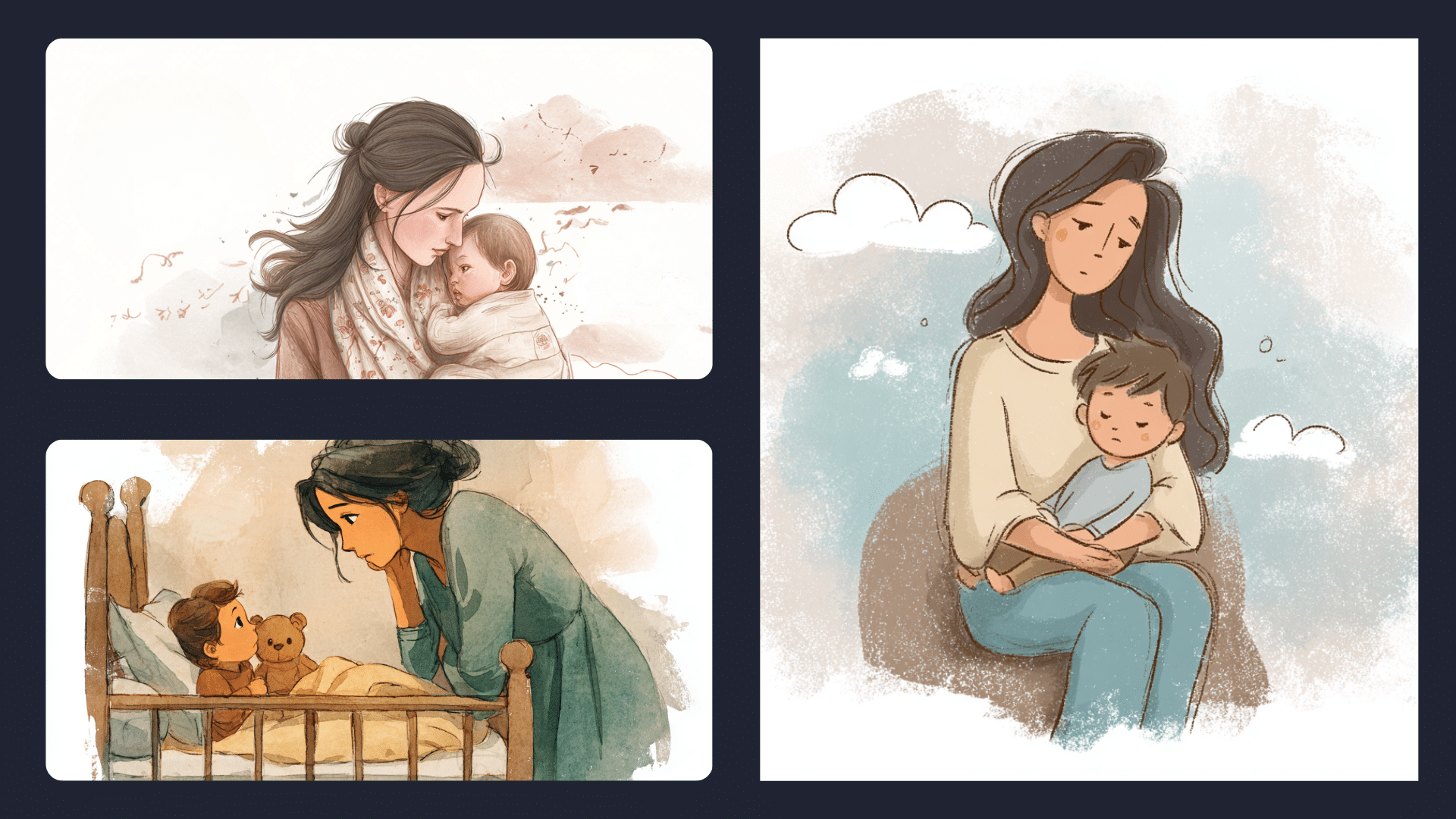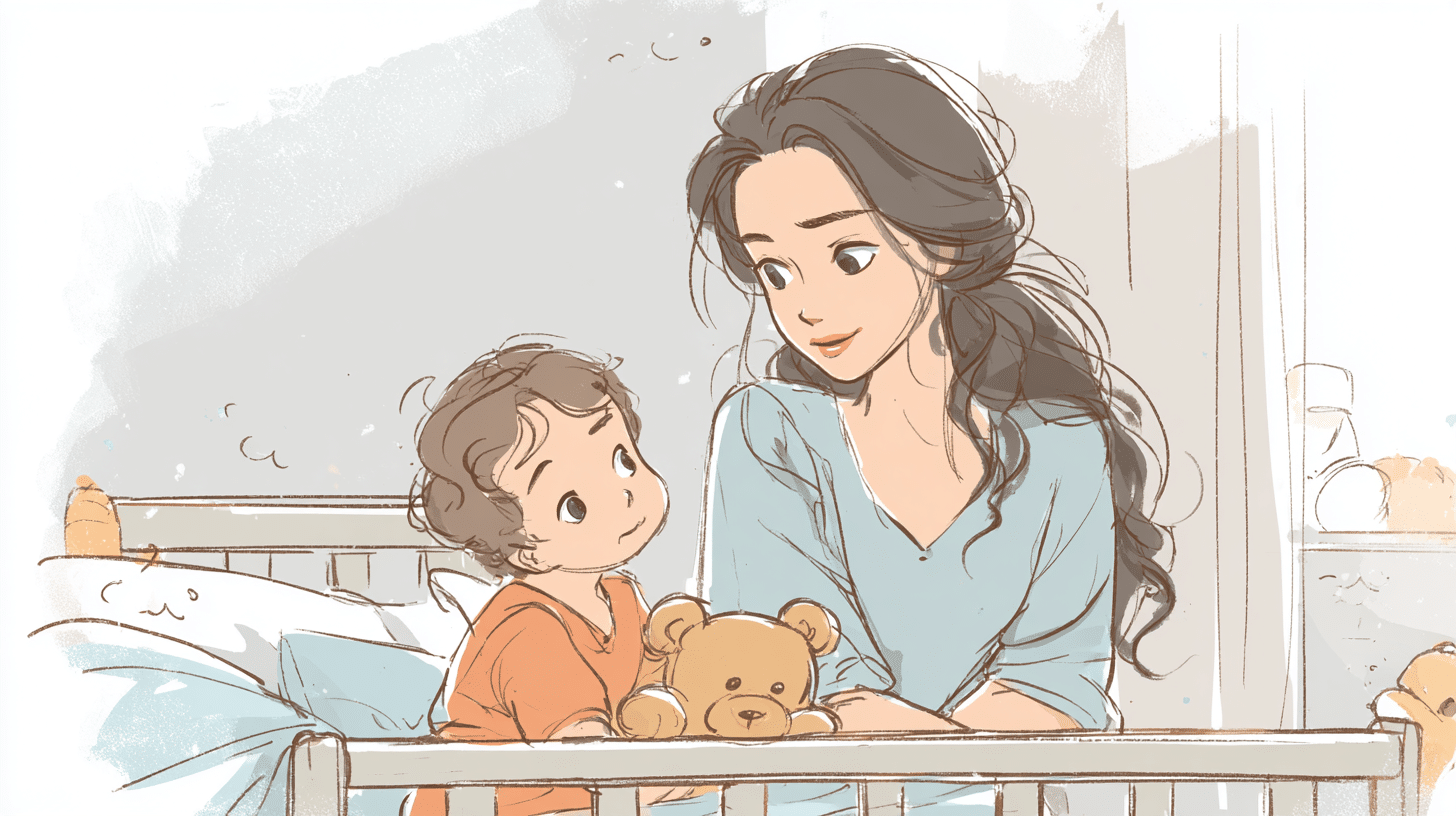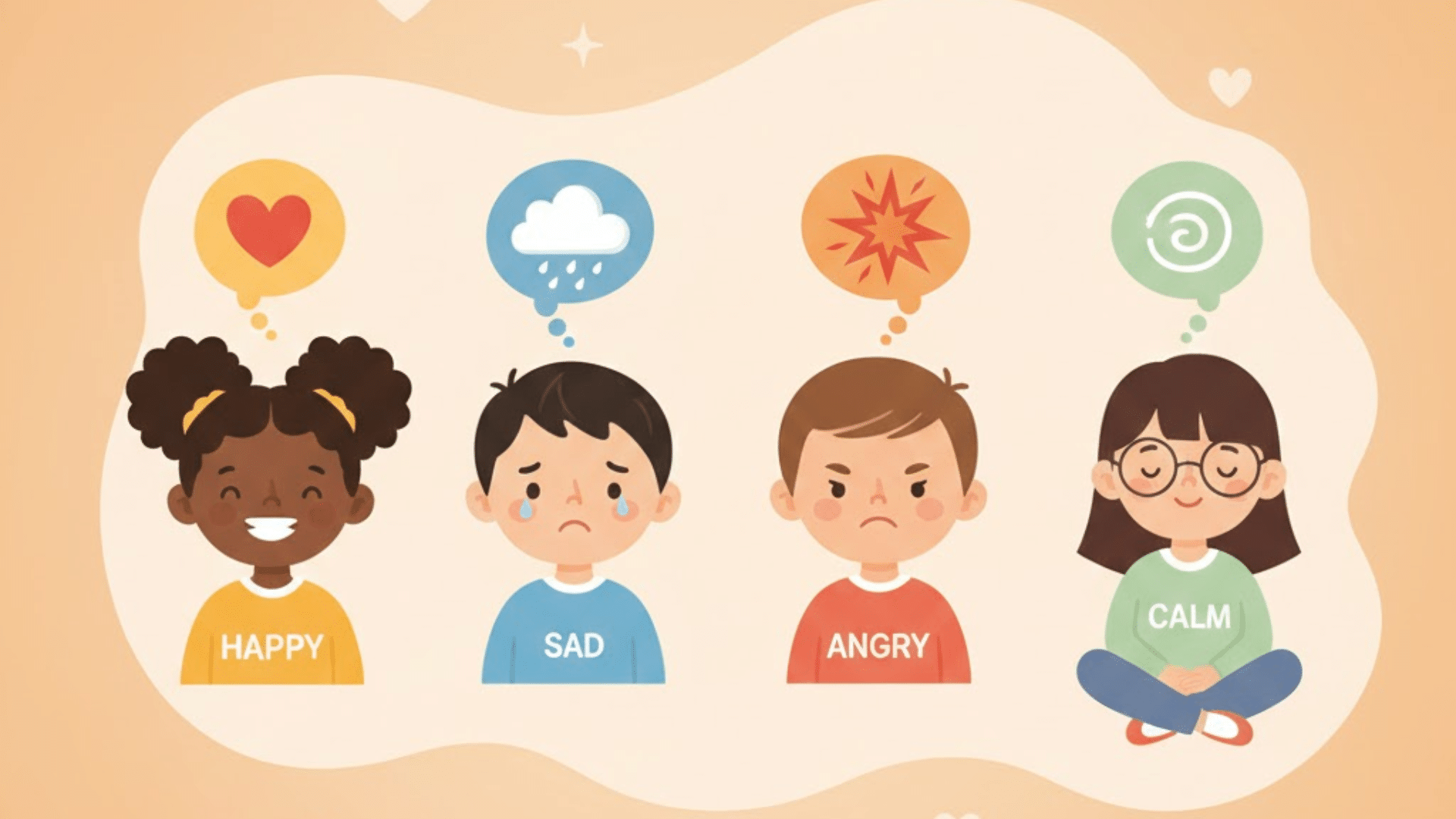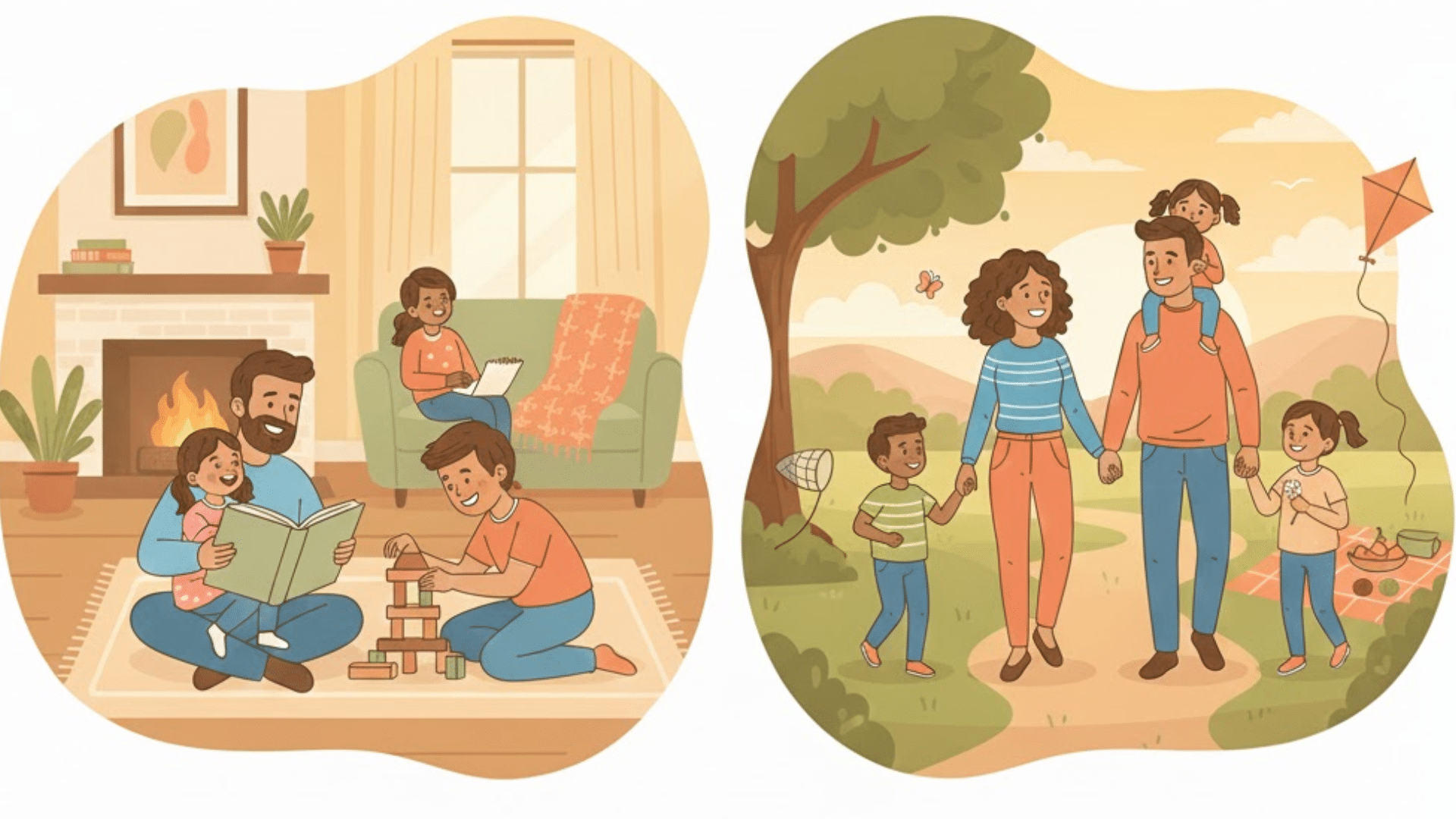Bonding with a baby is often described as magical and instant, but the truth is, it doesn’t always feel that way.
If you’ve been wondering about the signs you’re not bonding with your baby, you’re not alone.
Many new parents feel surprised, even worried, when the connection isn’t immediate. I remember thinking something was wrong with me when the bond didn’t come right away.
This blog will walk you through common signs, why bonding can take time, and practical steps to help you strengthen the connection.
Most importantly, it will remind you that struggling to bond doesn’t make you a bad parent.
What Bonding With Your Baby Really Means
Bonding is the deep connection that grows between you and your baby, and it doesn’t always happen instantly. For some, the spark is immediate, while for others, it takes weeks or even months.
It can show up emotionally through warmth, affection, or the simple joy of watching your baby sleep. Physically, it builds through closeness – feeding, rocking, or responding gently to their cries.
Every parent and baby’s journey is different, and there’s no single “right” timeline. What matters most is showing up with care and consistency so the bond can grow naturally.
Signs You May Be Struggling to Bond With Your Baby

Sometimes bonding doesn’t happen the way you imagined, and that can feel confusing or upsetting. These signs don’t mean you’re a bad parent. They simply show that the bond may take more time to build.
1. Feeling Detached
You may feel like there’s a wall between you and your baby. Even though you’re physically close, the emotional connection might not be there. This detachment can make bonding feel forced, and you might question if the feelings will ever come naturally.
2. Resentment
Some parents notice feelings of resentment toward their baby or the demands of parenting. It may feel like your freedom is gone or that life has completely changed. This doesn’t mean you don’t love your child; it usually reflects exhaustion, stress, or lack of support.
3. Guilt About Disconnection
When the bond doesn’t match your expectations, guilt often sets in. You might ask yourself, “What’s wrong with me?” or compare yourself to other parents who seem instantly connected. Guilt only adds pressure, making bonding feel even harder.
4. Going Through the Motions
Feeding, rocking, or changing your baby may feel like routine tasks rather than moments of closeness. You do what needs to be done, but without an emotional spark. Over time, this can feel draining and leave you wondering why others describe these moments as joyful.
5. Negative Thoughts
Some parents have recurring negative or intrusive thoughts about parenting. These thoughts might include doubts about being a “good parent” or fears that you’re not cut out for this role. While unsettling, these thoughts are common and often linked to stress, anxiety, or postpartum depression.
6. Avoiding Eye Contact
Looking into your baby’s eyes should feel natural, but when bonding is a struggle, it can feel uncomfortable. You might catch yourself avoiding it altogether. This lack of eye contact can make you feel even more disconnected, though it’s often temporary.
7. Tension During Caregiving
Daily care tasks can feel heavy when emotions are strained. Instead of enjoying feeding or bath time, you may feel stressed, anxious, or rushed. The tension can make you dread these moments, even though they’re opportunities to bond.
8. Dreading Daily Tasks
When you anticipate feeding, diaper changes, or soothing with dread, it’s often a sign of bonding difficulties. These tasks may feel like burdens rather than meaningful interactions. It doesn’t mean you don’t care it’s usually a reflection of fatigue or feeling overwhelmed.
9. Struggling to Soothe
Babies cry often, and when you can’t calm them, it can be disheartening. You may feel like you’re doing something wrong or that your baby doesn’t respond to you. This frustration can create a cycle where both you and your baby feel unsettled.
10. Withdrawal
Sometimes babies show signs of bonding struggles, too. A baby who seems unusually quiet, avoids interaction, or looks away during contact may be showing stress. This behavior doesn’t mean your baby doesn’t love you; it’s often a sign that they need more time to feel secure.
11. Lack of Response
If your baby doesn’t react to your voice, smile, or touch, it can feel discouraging. They might avoid eye contact or seem uninterested in being comforted. These signs can make you feel even more disconnected, but they don’t mean bonding won’t happen. Babies are sensitive to emotions and may respond once things feel calmer and more consistent.
Causes of Bonding Difficulties
There are many reasons bonding may not happen as quickly as you expect. These challenges are common and do not mean you can’t build a strong connection over time.
Postpartum depression or anxiety can bring feelings of sadness, worry, or even panic. When emotions feel overwhelming, it becomes harder to focus on connecting, even though the love for your baby is there.
Daily stress, financial pressure, or relationship strain can also drain your energy. When you feel like you’re carrying everything on your own, it’s easy to become emotionally distant from your baby.
Some babies cry more, sleep less, or are harder to soothe than others. These challenges don’t mean you’re failing; they just mean bonding may take more time and patience.
A difficult or traumatic birth experience can leave lasting emotions. When you’re still processing what happened, it’s natural for bonding to take longer as you heal both physically and emotionally.
How to Bond With Your Baby
Bonding doesn’t need to be complicated. Small, everyday actions are often the most powerful ways to connect with your baby. With time and consistency, these moments help build trust and closeness.
- Daily habits: Spend time skin-to-skin with your baby. Make eye contact while feeding. Talk, sing, or hum throughout the day so your baby learns your voice and feels close to you.
- Baby massage and gentle play: Use soft strokes, gentle massages, and playful moments like peek-a-boo or singing. These activities calm your baby and help build trust.
- Building routines and consistency: Create regular patterns for feeding, sleep, and play. Predictable routines make your baby feel safe and strengthen the bond over time.
- Involving dads and partners: Encourage dads and partners to cuddle, soothe, and play with the baby. Sharing care gives your baby more ways to feel secure and connected.
When to Seek Professional Help
It’s normal for bonding to take time, but there are moments when extra support is important.
Knowing the signs and options for help can make the process easier and safer for both you and your baby.
| Warning Signs of Postpartum Depression or Anxiety | Professional Help Options |
|---|---|
| Feeling sad, hopeless, or overwhelmed most of the time | Therapists or counselors: Offer tools to manage emotions and build coping strategies |
| Strong worry, panic, or fear that doesn’t ease | Pediatricians or OB-GYNs: Can check both your health and your baby’s development |
| Losing interest in activities you once enjoyed | Support groups: Provide comfort, reassurance, and advice from parents with similar experiences |
| Ongoing trouble bonding even after weeks or months | Hotlines or crisis services: Available if you ever feel unsafe or overwhelmed |
| Thoughts of harming yourself or feeling unable to cope | Emergency medical services: Call local emergency numbers or crisis hotlines right away for immediate help |
Conclusion
Bonding with your baby can take time, and that’s completely normal.
Some parents feel the connection right away, while others need weeks or months of small, steady steps. What matters most is showing up with care, patience, and love each day.
If you notice ongoing struggles or signs of postpartum depression or anxiety, remember you don’t have to go through it alone.
Talking with a professional or joining a support group can bring real relief. Reaching out for help is a sign of strength, not weakness.
Frequently Asked Questions
Can bonding be harder after a C-section?
Yes, some parents feel delayed bonding after a C-section due to recovery or limited early skin-to-skin, but connection can still grow over time.
Does breastfeeding make bonding easier?
Breastfeeding can support bonding through closeness and touch, but it’s not required. Bottle-feeding parents bond just as strongly through eye contact and cuddles.
Can grandparents or caregivers bond with a baby, too?
Absolutely. Babies form multiple secure bonds with loving caregivers who consistently meet their needs through attention, comfort, and presence.
Is bonding different with twins or multiples?
Yes, bonding may take longer when caring for more than one baby, but spending individual time with each child helps build strong, unique connections.










